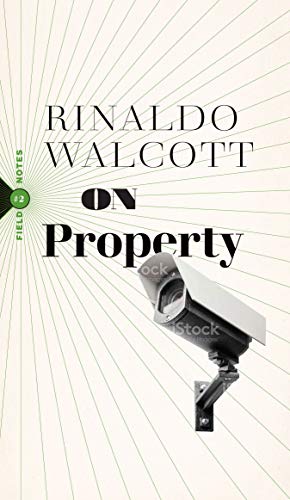Walcott, Rinaldo. On Property: Policing, Prisons, and the Call for Abolition. Biblioasis, 2021.

Rinaldo Walcott’s memoir of the 70s onward in On Property is a political analysis of racialized urban caring and uncaring. He expands property beyond real estate and chattels. It can be usefully read to help focus attention on the ways that private property spatially constitute forms of belonging that allow care to be extended to those who belong and withheld from outsiders. The sociological divisions of obligations and rights of care hinge on the geographies of care discussed in Grabauer et al’s anthology on Care and the City. Walcott extends abolitionist struggles to the elimination of private property as a foundational structure of urban society and the social relations of exclusion and oppression illustrated in police killings of black men. I exactly experienced Walcott’s and C.L.R. James’ critique of elites who respond to demands for abolition – of slavery, of violent policing – by refusing to admit that it is actually desired by those demanding it (16). A letter from the Mayor of Ottawa, thankfully soon to retire, instructed me that I would demand the return of policing if it was abolished.
The legacy of colonial matrix of enslavement is that Black people remain objects of uncaring treatment by officials and institutions that others can expect to care for them or to side with their rights (to property, for example) as primary. Contemporary abolition is de-carceration in favour of a commons which is necessarily one of community and polis, ethics and politics; “The very idea of what constitutes a successful society is currently organized around the private ownership of property, for which an entire apparatus has been developed to perpetuate and protect.” (88) That is, to maintain and care for; “At the centre of that apparatus is policing…. a tremendous subsidy for property owners…. its perpetuation negates another set of possibilities…” (88). Large proportions of the population have barricaded themselves in suburbs, starving the more cosmopolitan and racially integrated areas of cities of economic vitality and abandoning these areas to a battle for survival.
“A sober assessment of what constitutes property crimes leads one to see that an entire carceral system isn’t necessary to stem them. Indeed, under different economic and social conditions, where we better care for our least fortunate and most vulnerable, and where we work to right historical wrongs and injustices, these kinds of crimes would largely disappear.” (89)
- Rob Shields
Read the companion commentary of Care and the City